- Home
- Nancy Buckingham
The Other Cathy Page 7
The Other Cathy Read online
Page 7
As Emma stooped to fill the kettle with silk-soft, sparkling water, she thought guiltily that she had defied Uncle Randolph’s wishes on two counts; he did not want his family to have any contact with Ursly, whom he regarded as a meddlesome old woman; furthermore, she had ridden across the moor alone, something forbidden in the family almost to the point of superstition ever since Uncle William’s accident all those years ago.
Returning indoors, Emma watched while Ursly stirred the peat fire into life and placed the kettle on the hob.
‘Seth told me something this morning, Ursly,’ she said at last. ‘He told me you’ve been saying that Cathy won’t see the winter. It was wrong of you. How could you possibly know any such thing?’
‘Happen I do know, then.’
‘But it’s ages since you’ve seen Cathy. Dr Mottram, who attends her, has never suggested that it might be so soon. He says Cathy might survive another year or two yet.’
Ursly’s breath hissed through her lips. ‘Doctors! What use are they? When my mistress slipped her babies, three on ’em, the doctor couldn’t do nowt. ‘Twas only when she did beg me to aid her that she came safe through to childbed, with Miss Cathy.’
‘My Uncle Paget says that’s all nonsense,’ Emma ventured.
‘Aye, he would, wouldn’t he? The old doctor now, he did have t’grace to admit that I saved young Master William’s life. These ones now, they’d deny me that if they could.’
Emma nodded, for it was all too true. Neither Uncle Paget nor Bernard had a good word to say for the old woman. They deeply resented it when their patients, failing to find themselves cured by conventional medicine, went along to Ursly for her mysterious herbal concoctions, and often, according to hearsay, with miraculous results.
‘Anyway, it was a blessing for Uncle William that you found him that day,’ Emma said. ‘Otherwise he might have lain there for hours and bled to death, or been frozen in the snow. What a lucky chance that you happened to be going across the moor.’
The myopic eyes glinted. ‘Chance, tha’s saying it was?’
Rebuked, Emma went on, ‘Well, anyway, how did you come to be on that lonely track, Ursly? You must have been heading somewhere.’
‘I never got there, then.’
The old woman rose stiffly and made the tea in an earthenware pot, putting it aside to draw.
‘You never got where?’ asked Emma, cunningly.
‘Where I were a’going, o’course!’ But her next words were serious enough. ‘It’s nobbut useless dwelling on what’s long past and done wi’, that’s what tha’s been telled, eh?’
The seemingly innocent remark touched so close to the nub of Emma’s visit that her heart gave a sudden flurry. Ursly enquired what was troubling her, but she had a strong feeling that the old woman knew the answer already – or was she up to her guessing games again? In any event, Emma could no longer bottle up the questions she longed to ask. She began in a nervous voice, ‘Seth told me the other day that you warned him about bad trouble coming from somewhere far off. Were you referring to Matthew Sutcliffe?’
Ursly calmly poured the tea into two kitchen cups, and passed one to Emma. There were no saucers and Ursly’s own cup had lost its handle. ‘But tha pays no heed to what I says, eh dearie? Like wi’ little Cathy’s birth, when you telled me I were talking nonsense. We’ll have to wait and see, eh? We’ll see what we shall see!’
‘Please answer me! What is it you know about Mr Sutcliffe? It’s important to me, Ursly. He claims he is an innocent man, wrongly convicted. He swears that he did not kill my father.’
‘And tha wants to believe him?’ ‘I don’t know what to think,’ said Emma wretchedly. ‘And tha longs for me to advise thee to put thy trust in him?’
‘I want to know the truth, the truth! Should I hate him or —’
‘Or what, dearie?’
Challenged, Emma was thrown into a panic. She snatched up the hot tea and drank so deeply that she scalded her mouth. The brew was dark and bitter, one of Ursly’s herbal mixtures. But it was strangely soothing, and in a few moments she felt calmer.
‘He told me that during all those years he spent as a convict, his sole aspiration was to return to this country and be revenged on the true culprit, to see that justice was done.’
Ursly was scornful. ‘And what manner o’ use will that be to him? He’s served his sentence, and by all accounts come back home a rich man. There’s nowt to be gained by raking over old grievances, and no good’ll ever come on’t. Better for him to leave things be, and enjoy spending his brass.’
‘Then you do believe he is innocent!’
‘ What I believe, and what tha believes won’t make no difference in the end. The path ahead is already laid down, waiting to be trod.’
‘But where does it lead?’ Emma asked anxiously.
The old woman cackled and picked up the pestle and mortar again.
‘Why ask me that, dearie, when tha scorns my powers? Tha’ll find out in good time, and happen it’ll be sooner than tha thinks. Now tha’d best be off before thy aunt finds tha’s been out riding alone, and tells thy uncle. Thank’ee kindly for the gages.’
Chapter Six
While Emma was visiting Ursly on the moor, Matthew rode through the valley to Bythorpe. Leaving his horse in the care of a groom at the Waggoners’ Inn, he walked on to the farther outskirts of the village, where Blanche lived in a pretty Queen Anne house, discreetly out of sight of the grime and dinginess associated with the mill. He paused outside the wrought-iron gate, gazing beyond at the well-tended lawns on either side of the flagstone path edged with colourful herbaceous plants. Past a weeping ash tree he glimpsed a gazebo built into the boundary wall, its red brickwork almost concealed by the clinging ivy, its upper windows overlooking the lane at the rear. For a full minute he stood motionless, lost in thought, then with a sigh he proceeded through the gate to the front door, immaculate with white paint and surmounted by a graceful fanlight. He lifted the lion’s-head knocker. The door was opened by a maid servant in a black stuff dress and a white cap and apron whose neatness was the strongest feature in her favour, for, as Chloe had once forthrightly remarked, she had been chosen for her age and plain looks. Blanche was acutely conscious of her own two-score years.
Matthew raised his hat and bade the servant good afternoon. ‘Is Mrs Hardaker at home?’
‘I will ask madam. What name shall I say, sir?’
He smiled. ‘Please tell your mistress Mr Sutcliffe would be grateful for a few minutes of her time.’
She showed him into the drawing room to wait, where he stood appraising the gracious apartment that was furnished in a style so typical of Blanche, with two sofas and a settee upholstered in purple and gold, three pairs of cane chairs and several tapestry footstools. A grand piano was open near the windows, and he idly counted six tables scattered about the room. Above the Adam-style fireplace hung the portrait of her deceased husband. Though lean of flesh, William Hardaker had possessed his family’s impressive broad frame, and more than the usual measure of good looks, but the perfection of the features was spoilt by the petulant set of the lips. He was a man who had thought of himself first in all things, and Matthew had never had much regard for him.
Meanwhile, in the parlour Blanche had been thrown into a fluster. Instructing her daughter Priscilla to continue the water-colour painting she was working on, she hurried upstairs to her boudoir, followed breathlessly by the maid servant. From the wardrobe she selected her newest gown of coral silk, rapidly shedding the serviceable dark poplin day dress she had been wearing. Her hair, mercifully still a fine rich honey colour once the few grey threads were plucked out, she decided to have rearranged, the sides plaited and looped to expose her prettily-shaped ears. There was no need to rouge her cheeks, for they were becomingly touched with natural colour prompted by the thought of the man who waited for her below. He had already waited for over twenty minutes, Blanche realised with a spurt of apprehension. She made haste to go down t
o him. Outside the drawing room she took a deep breath, then throwing open the door she stood poised on lie threshold, a hand to her throat.
‘Mr Sutcliffe, how kind of you to visit me,’ she said charmingly, and called over her shoulder to the servant, ‘Bertha, please bring tea at once.’ As the door closed behind her, Blanche went on in a voice that was soft and warm, ‘Matthew, I was wondering if you would come. I so hoped you would.’
He stood over by the window smiling at her, his eyes taking in every detail of her appearance. But he did not speak, and she continued nervously, ‘I have thought of you so often, Matthew. Oh, you cannot know how often I wept at the thought of what was happening to you, and where you were. Was it so very dreadful?’
‘Let us not talk of it, Blanche. Tell me instead how you discovered the secret of adding only one year to your age when every other woman is obliged to add two. I swear you are more beautiful than ever.’
She smiled delightedly. ‘I perceive you haven’t changed. Matt. Even as a very young man you possessed the art of paying a gallant compliment.’
‘But I deny it! I never spoke anything but the unvarnished truth to you. I adored you, Blanche. You were the sun and the stars to me.’
With a surge of confidence she seated herself on one of the velvet sofas, and patted a silken cushion beside her.
‘Then you had better come and make some more of those oh-so-honest remarks. Matt.’
Seeming not to notice her invitation, he went to stand before her on the hearthrug, one elbow resting on the marble mantelpiece.
‘I am sadly uninformed about the happenings in the Brackle Valley. You must bring me up to date. I gather your husband died some years ago.’
‘Yes, in 1851. William was in very poor health – when wasn’t he? Yet he insisted on travelling to London for the Great Exhibition. The Brackle Valley Mill had quite a large display and he rather relished his connection with it, and the thought of being presented to royalty. The dear Queen was most gracious, and Prince Albert condescended to view our exhibit. It really was quite an honour. But I’m sure the excitement of it all was what carried William off.’
‘A tragic loss,’ Matthew murmured.
Her golden eyes regarded him steadily. ‘I often used to wonder why William proposed to me; why, indeed, he ever wanted to marry at all, for he had little wish to please a wife. It was some while before the answer occurred to me. You see, Randolph had married just the previous year, so naturally Henrietta became mistress of the Hall in place of old Mrs Hardaker. For years, ever since William’s riding accident, he had been his mother’s pampered darling and he hated the new regime because he suddenly became of little importance. Alas, I was too innocent to see that he was essentially a weak and self-centred man.’ She paused a split second, and added, ‘I was very young indeed when I married, of course, little more than a child.’
Matthew nodded gravely. ‘I had rather imagined that your marriage would never be blessed with offspring, after so many years. But I hear that in fact you have two.’
‘Yes, a pigeon pair! Dear Priscilla – you shall meet her presently – is eleven; and there’s Cedric, who yesterday went to stay with a friend for the remainder of the school vacation. He boards at Repton, you know, such a fine establishment where I can be confident he will mix only with boys of good family. Randolph, if you please, demands that my Cedric should leave school and start work at the mill – at fourteen years of age! He is the only male Hardaker in the next generation and Randolph says it would make a man of him. But I tell him I want my son to become a gentleman.’
‘My father,’ observed Matthew, ‘started work at the mill when he was only six.’
The arrival of Bertha with the tea saved Blanche the trouble of responding. While she poured, Matthew enquired, ‘Is your brother-in-law in a position to insist on his wishes being carried out? I mean, your own income derives from the mill, does it not?’
She laughed ruefully. ‘My income, such as it is, derives from William’s share of the firm, willed him by his father, which Randolph cannot touch. There should be a great deal more, but William frittered away everything his doting mother left him. The others always resented this, and out of spite Randolph took the chance of refusing to pay him a salary after the old lady died. He maintained that William did not work for it, and his dividends should be sufficient for us to live on; anything more he would only gamble away. To be fair, Randolph had some justification, because it’s true my husband was an inveterate gambler. As the years went by he got worse and owed money everywhere. It was a nightmare for me sometimes. Eventually even his brother Hugh, upon whom he had always relied, began to refuse him.’
Matthew studied her, his eyes narrowed. ‘You are very outspoken about your husband and his family. Almost to the point of indiscretion.’
‘And you cannot imagine what a relief it is! With you, my dear Matt, I know it is quite safe to unburden myself.’
He smiled. ‘Then pray continue. Destroying the character of others is such an agreeable pastime, is it not?’
In the absence of a fan she regarded him impishly over the rim of her teacup. ‘You are thoroughly wicked! You have changed, after all. As a young man, I remember, you were burning with honour and moral integrity.’
‘Moral integrity! Can you say that of me, Blanche?’
She flushed, but it was a pretty sight. ‘At least you were not a cynic.’
‘Ah well, time changes us all.’ Fingering his silk necktie, Matthew went on, ‘By the way, I was shocked by Dr Eade’s appearance the other evening. He never used to drink more than moderately, to my knowledge.’
‘I suppose he has some excuse, the poor wretched man!’ She saw the question in his eyes. ‘You do not know the story of their daughter, Annabella?’
‘I had forgotten they had a daughter. What happened to her?’
‘She died of the croup, shortly after your – after you went away. Paget holds himself to blame, and I suppose, as a doctor, he should. He diagnosed quinsy at first, you see, and by the time he discovered the true disease, it was too late to save the child.’
‘Strange that he should make such a mistake, surely? I had the impression that, for all his absurd pomposity, Dr Eade was regarded as a most able physician.’
‘Oh yes – yes, he was. Drink has taken its toll, I am afraid, and he is fast going downhill. If it weren’t for young Dr Motram the practice would have collapsed by now. Poor Paget! Had Jane been a little more forgiving he might have pulled himself together, but she’s been no help to him at all, gorging herself with food and becoming quite disgustingly gross.’
‘Overeating was her way of coping with bereavement, perhaps, as drinking was his. Another child might have been a better answer to their problem.’
Blanche gave a tiny giggle, ‘My dear, the whisper is that they have never come close enough for that these past years. And it’s too late now.’
The French clock on the mantelshelf chimed the half-hour, a silvery tinkle of sound. When it had died away, Matthew said with an ironic Lift of his eyebrows, ‘Shall we continue with what we started? What about Miss Chloe Hardaker? Have you a good word to say for her?’
‘There’s precious little one can say about Chloe. She runs the household for brother Randolph and meekly accepts his word as law. You see, Chloe knows which side her bread is buttered. Since Henrietta passed away four years ago she’s been the mistress of Bracklegarth Hall, and the local people show her all due respect. There’s small chance of Randolph ever marrying again – he seems to prefer variety in women! So Chloe turns a blind eye to his philanderings, though they must shock her prudish soul to its very depths.’
Matthew laughed, ‘My dear Blanche, you’ve found quite a lot to say about Chloe after all, and have even included a sharp prod at Mr Hardaker himself for good measure. You must find my company stimulating.’
‘You know I do, Matt. I always did.’ Gazing up at him, she moistened her lips enticingly with little darts of her pink ton
gue. Matthew took a step towards her and her heartbeat quickened, then he seemed to change his mind and moved behind the sofa on which she sat. In the Venetian mirror on the opposite wall she could see him standing with hands in his pockets, studying a coloured Baxter print of Rubens’s ‘Garden of Love’.
‘Hugh Hardaker’s daughter has turned out to be a very spirited girl,’ he commented at length. ‘The other evening at Bracklegarth Hall she made it clear to me in no uncertain terms that the less she sees of me, the better she’ll be pleased.’
Blanche tutted. ‘Emma was always willful and headstrong. She comes very close sometimes to defying even Randolph. It amazes me that he lets her get away with it, for he’s a man who likes to have his own way, as you know. Chloe, I suspect, is secretly scared to death of him, but not Emma.’
‘She would be what, nineteen?’
‘Her twentieth birthday is on 21 November. I remember particularly because she was born on the very same day as the Princess Royal, who has just given birth to her second child. Emma should have been married off long ago – I shall certainly see my daughter is, when the time comes, though of course Priscilla is far too young for me to be thinking of that for a very long time yet. But, concerning Emma, I suppose the truth is that Randolph doesn’t want to lose such a useful companion for Cathy. The poor child is consumptive, you know, and she’s never really got on well with her Aunt Chloe. So Randolph doesn’t exert himself to throw suitable young men across Emma’s path. Mind you, if Jane has her way she’ll be paired off with Bernard Mottram before long. Bernard himself seems keen enough, and it would be a neat way for Jane to guard against him quitting the partnership and leaving Paget in the lurch.’

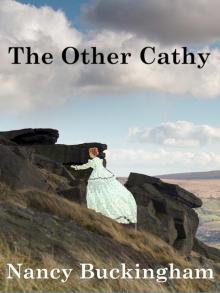 The Other Cathy
The Other Cathy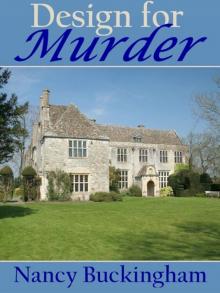 Design for Murder
Design for Murder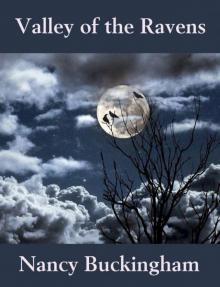 Valley of the Ravens
Valley of the Ravens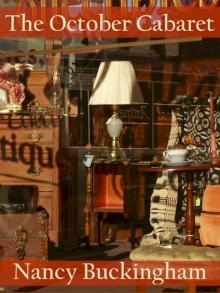 The October Cabaret
The October Cabaret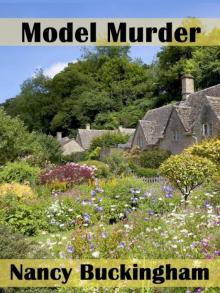 Model Murder
Model Murder Murder in the Cotswolds
Murder in the Cotswolds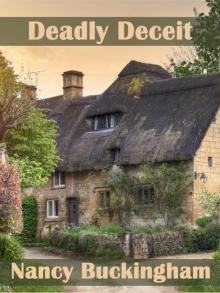 Deadly Deceit
Deadly Deceit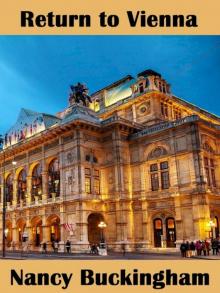 Return to Vienna
Return to Vienna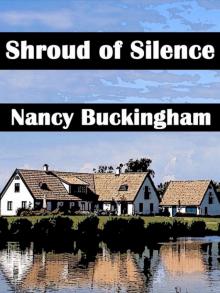 Shroud of Silence
Shroud of Silence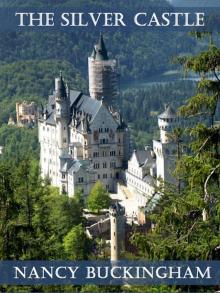 The Silver Castle
The Silver Castle A Cotswolds Legacy
A Cotswolds Legacy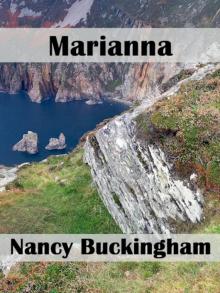 Marianna
Marianna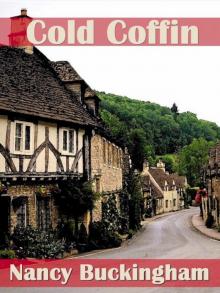 Cold Coffin
Cold Coffin Kiss of Hot Sun
Kiss of Hot Sun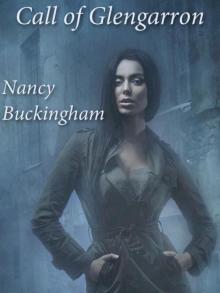 Call of Glengarron
Call of Glengarron Quest for Alexis
Quest for Alexis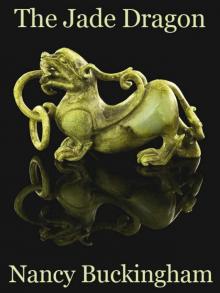 The Jade Dragon
The Jade Dragon